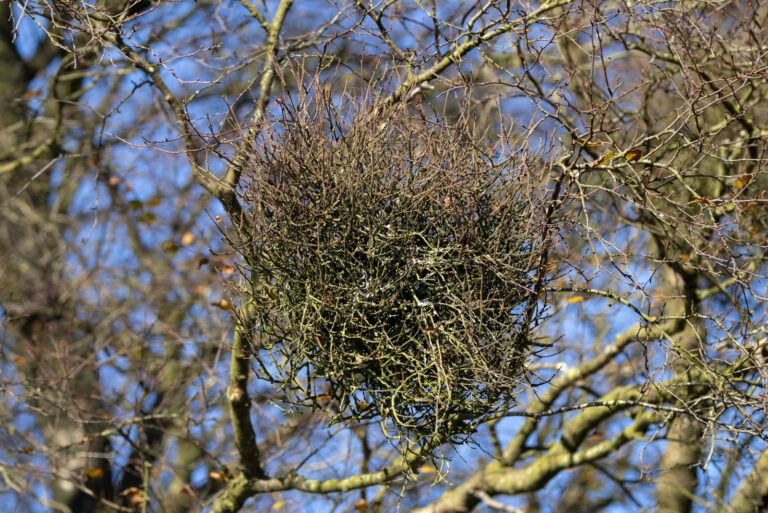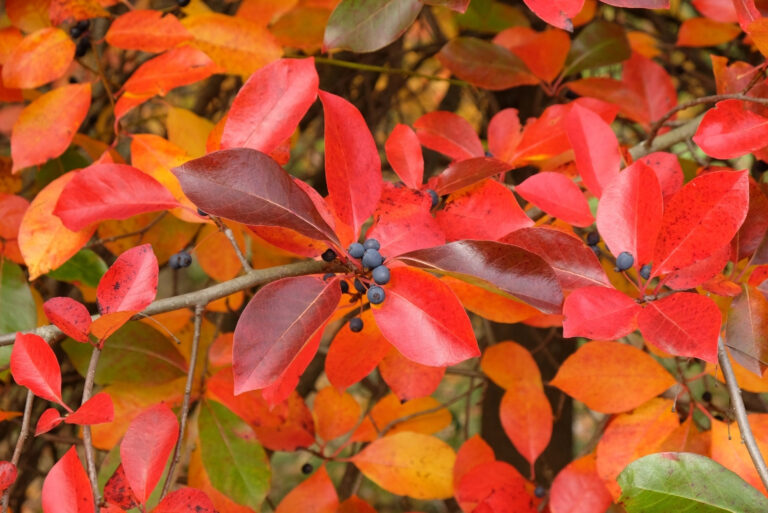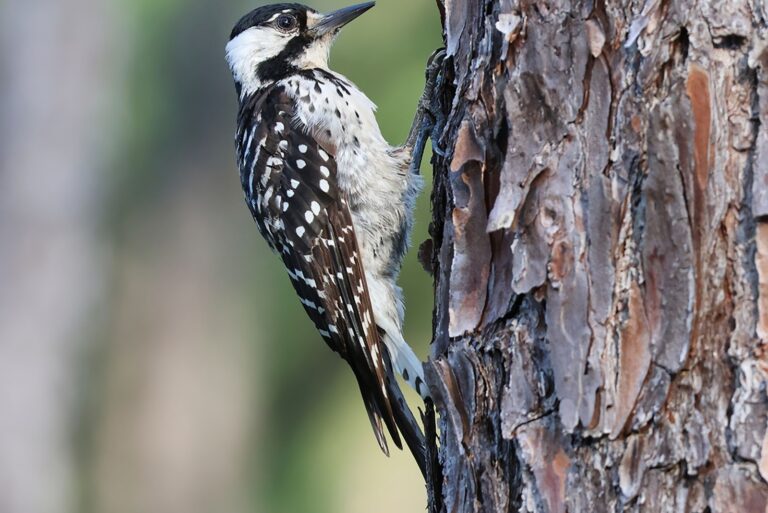8 Venomous Creatures Massachusetts Residents Should Know This Season
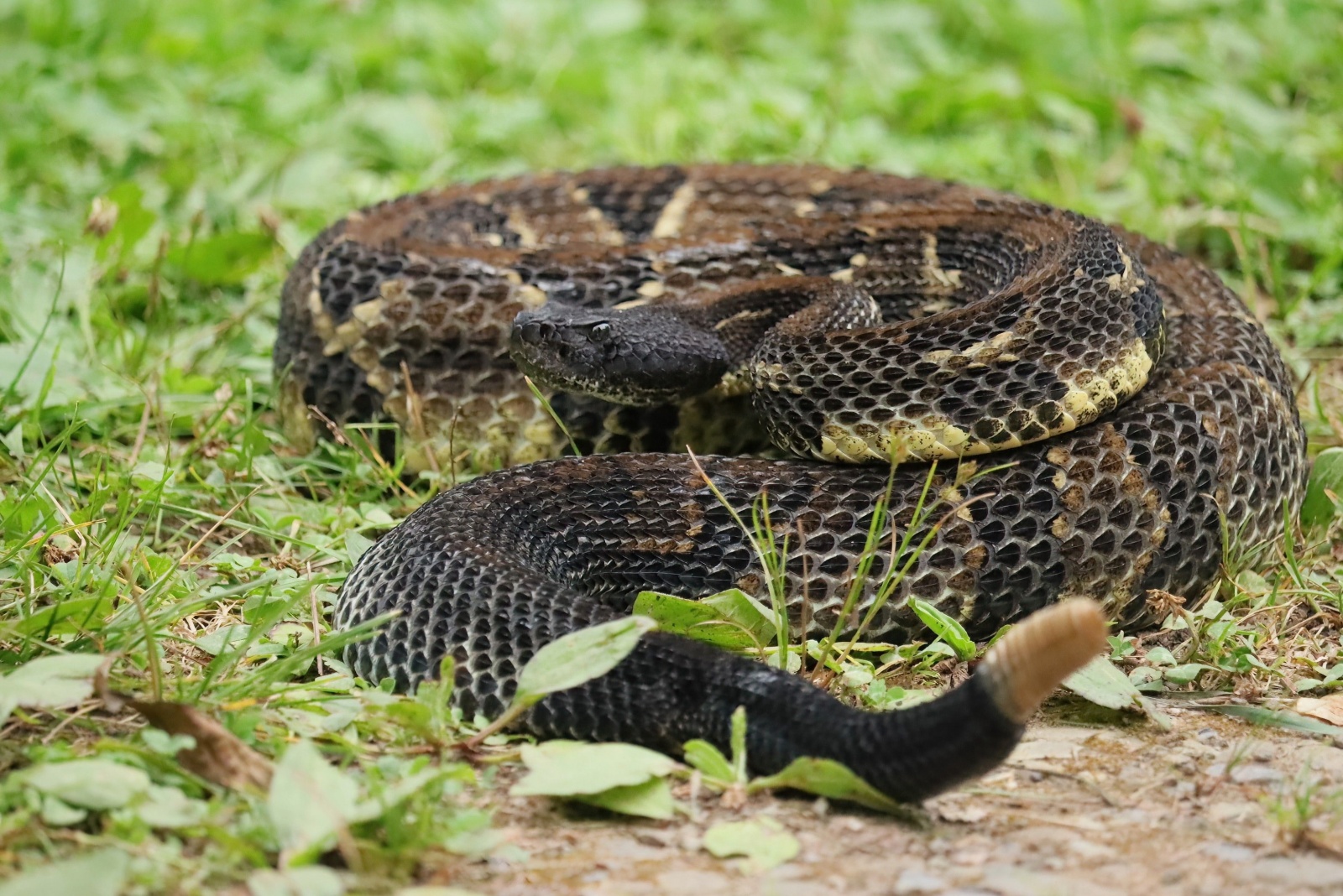
Massachusetts may be known for its fall colors and seaside charm, but the local wildlife can pack more than a little bite. As temperatures shift and critters become more active, a few venomous species are making their seasonal rounds—sometimes closer to home than you’d think.
From stealthy spiders to secretive snakes, here are 8 venomous creatures every Bay State resident should recognize this season.
1. Timber Rattlesnake
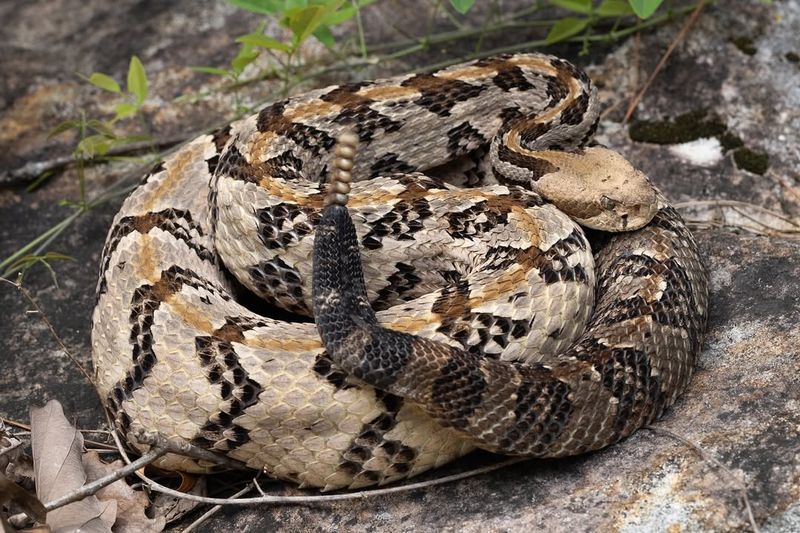
With a distinctive rattle at the end of its tail, the timber rattlesnake warns you before striking. Found in rocky hillsides and wooded areas, particularly in the Blue Hills and Berkshire Mountains, this shy reptile prefers to avoid humans.
If you hear that telltale buzzing sound, freeze and slowly back away. Never attempt to catch or kill one, as most bites happen when people get too close. Give them space, and they’ll happily slither away from you.
2. Northern Copperhead
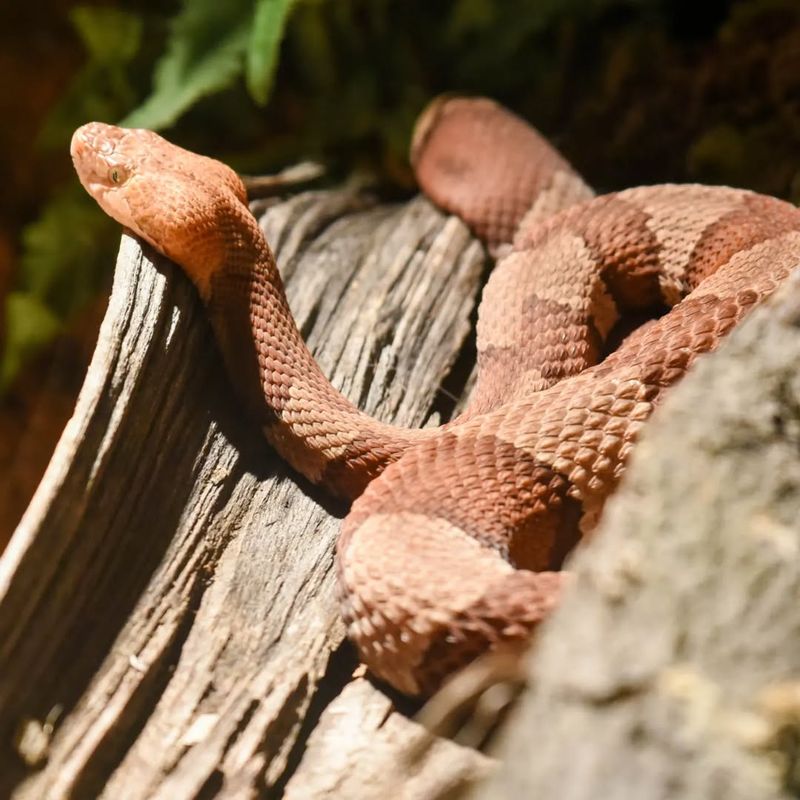
Sporting hourglass-shaped bands across its copper-colored body, this snake blends perfectly with fallen leaves. Copperheads prefer rocky outcrops and stone walls throughout western Massachusetts, making them easy to accidentally step on during hikes.
Their venom rarely causes serious harm to healthy adults, but bites are painful and require medical attention. Wear sturdy boots when exploring their territory, and always watch where you place your hands when climbing over rocks or moving logs.
3. Black Widow Spider
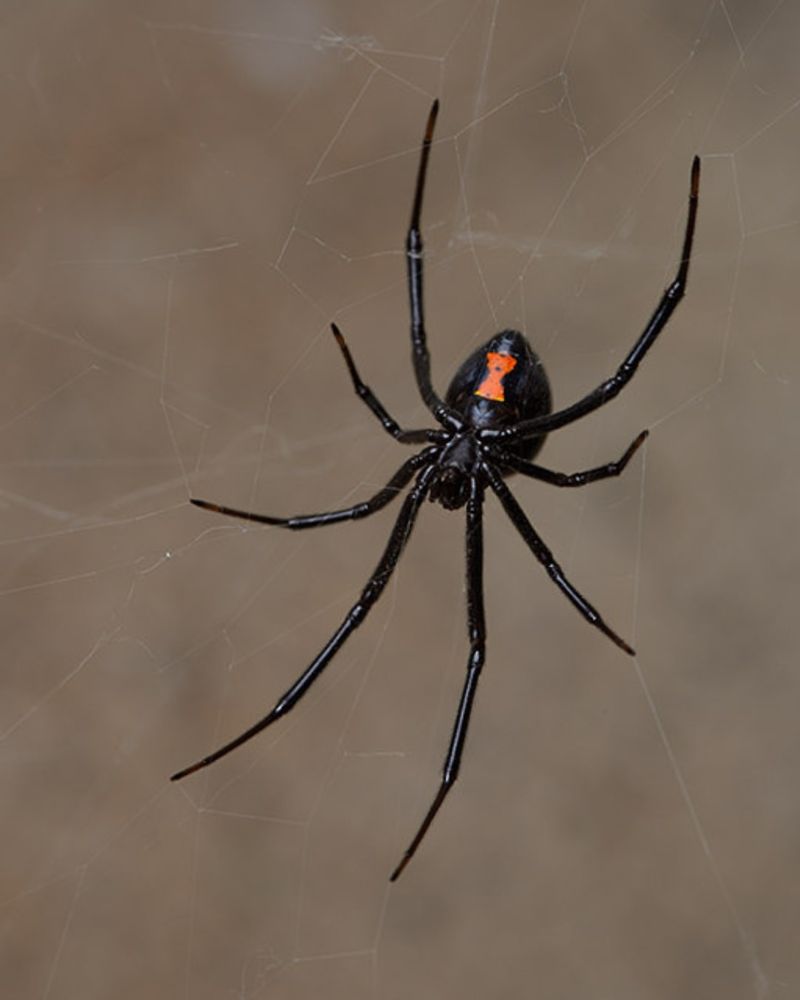
That shiny black spider with the red hourglass marking on her belly isn’t just creepy—she’s dangerous. Black widows hide in dark corners of sheds, garages, and woodpiles, spinning messy, irregular webs near the ground.
Only females bite, and their venom affects the nervous system, causing severe muscle cramps and pain. Wear gloves when reaching into storage areas or moving firewood. If bitten, seek medical help immediately, especially for children or elderly family members who face greater risk.
4. Yellow Sac Spider
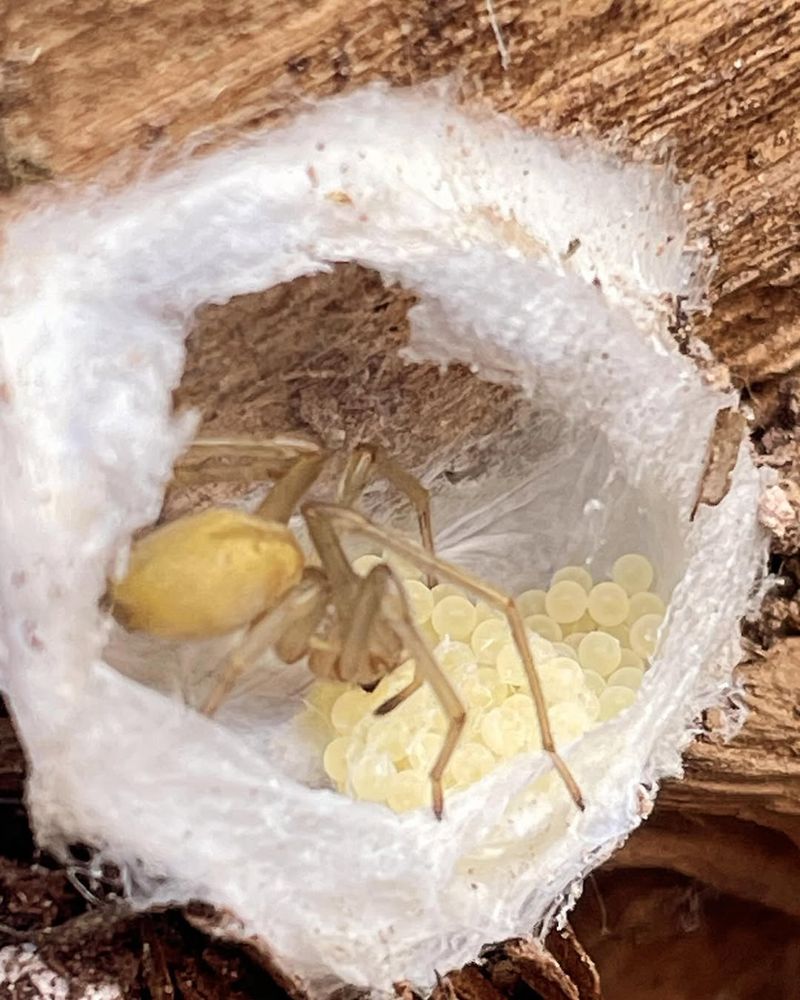
Small and pale yellow, these spiders don’t build traditional webs but create silken sacs in corners and behind picture frames. Active hunters at night, they’re responsible for more bites than any other spider in Massachusetts because they wander into beds and clothing.
Bites cause burning pain, redness, and sometimes tissue damage at the site. Shake out shoes and clothes before wearing them, and check bedding regularly. Most bites happen when the spider gets trapped against skin.
5. Bald-Faced Hornet
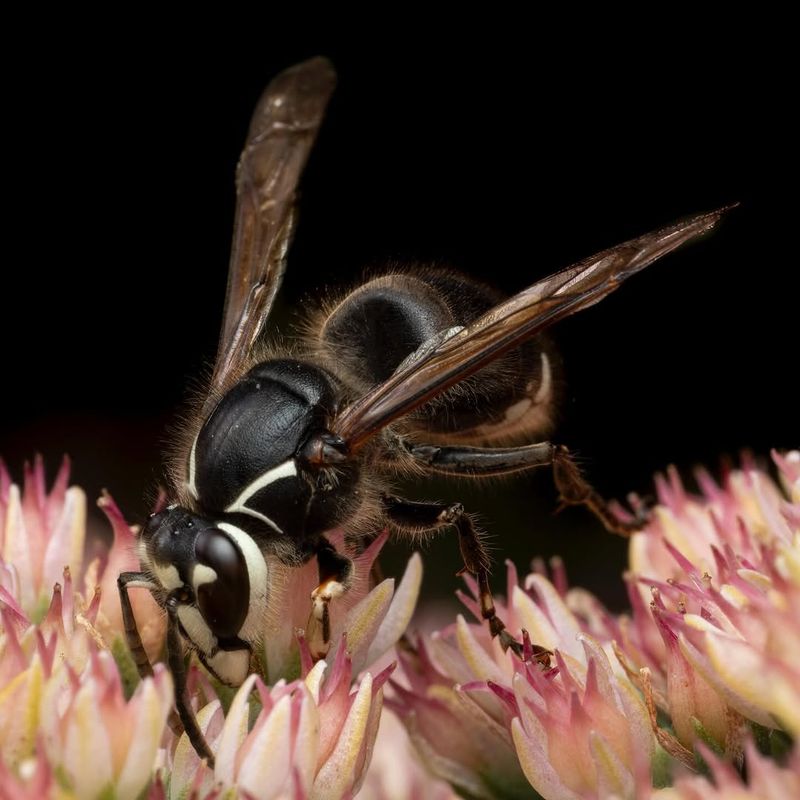
Despite its name, this aggressive insect is actually a wasp with a white-patterned face. Building large, gray paper nests in trees and under eaves, entire colonies will swarm to defend their home if threatened.
Their stings inject venom that causes intense pain, swelling, and potentially dangerous allergic reactions. Never approach or disturb a nest yourself—call professionals for removal. If you accidentally get too close, walk away calmly without swatting, as sudden movements trigger their attack response.
6. Deer Tick (Blacklegged Tick)
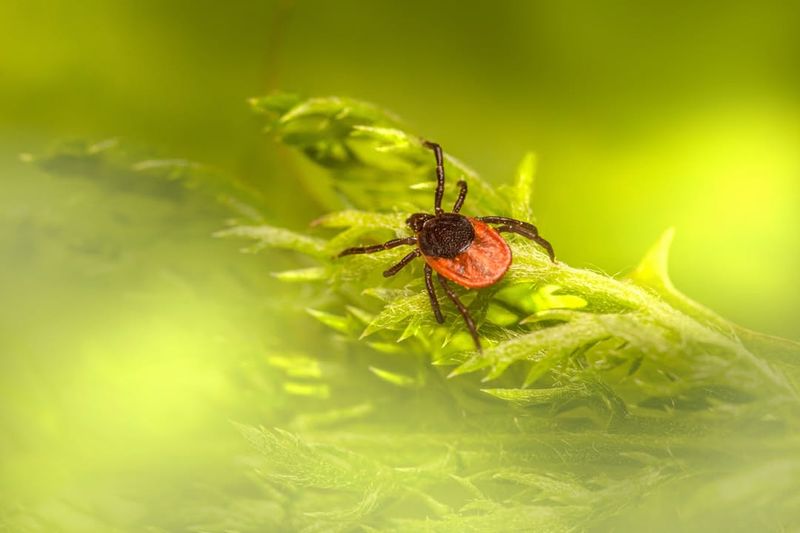
Tiny as a poppy seed, the deer tick carries Lyme disease and other nasty illnesses. Found in grassy areas, leaf litter, and wooded trails throughout Massachusetts, these parasites latch onto passing animals and humans, feeding on blood for days.
Check yourself thoroughly after outdoor activities, paying special attention to warm, hidden spots like armpits and behind knees. Remove ticks promptly with tweezers, grasping close to the skin and pulling straight out. Early removal greatly reduces disease transmission risk.
7. Brown Recluse Spider (Rare Visitor)
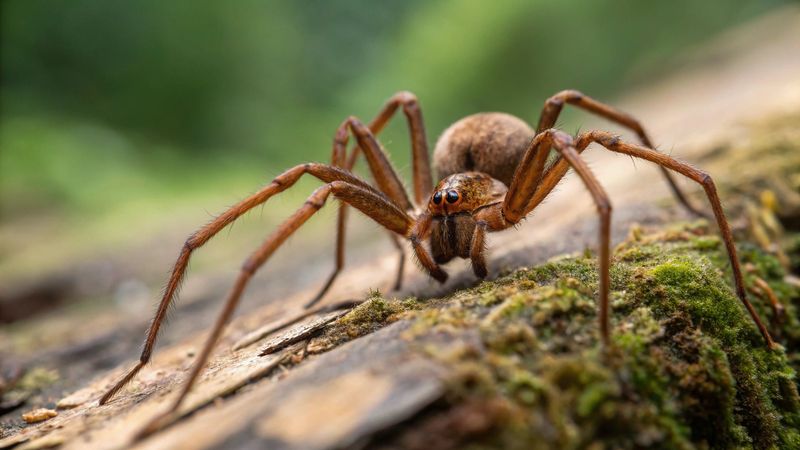
Though not native to Massachusetts, brown recluses occasionally hitchhike here in boxes and furniture from southern states. Recognizable by the violin-shaped marking on their back, they hide in undisturbed storage areas and rarely bite unless trapped.
Their venom destroys tissue, potentially causing serious wounds that take months to heal. Inspect items shipped from warmer states, and maintain clean, clutter-free storage spaces. If you suspect a bite, capture the spider if possible and seek immediate medical evaluation for proper treatment.
8. Striped Bark Scorpion (Occasional Stowaway)
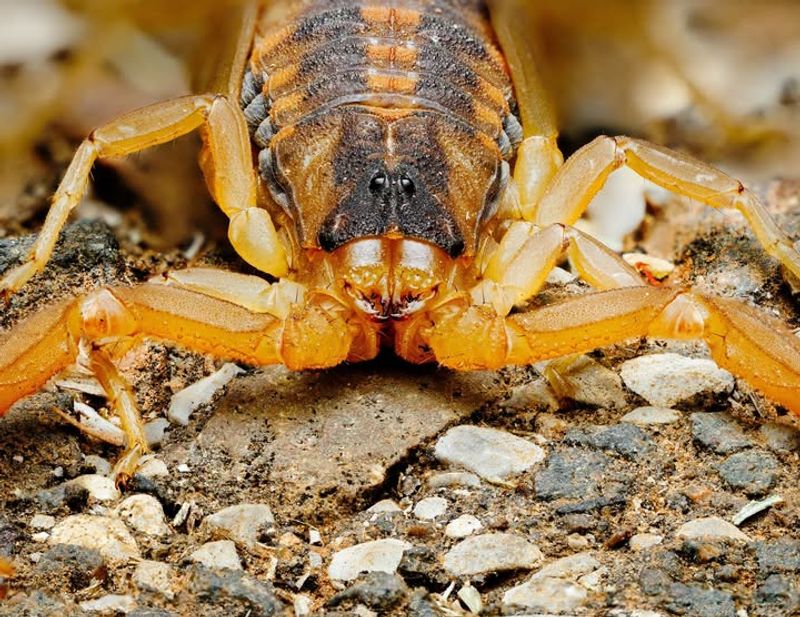
While scorpions don’t naturally live in Massachusetts, striped bark scorpions sometimes arrive as stowaways in shipments from the South. Pale tan with dark stripes, they glow bright green under ultraviolet light, making nighttime detection easier.
Stings cause sharp pain similar to a bee sting but rarely require medical treatment for healthy adults. Inspect packages from southern states carefully, especially firewood and produce. Shake out shoes and check bedding if you’ve recently received shipments from scorpion-inhabited regions.



